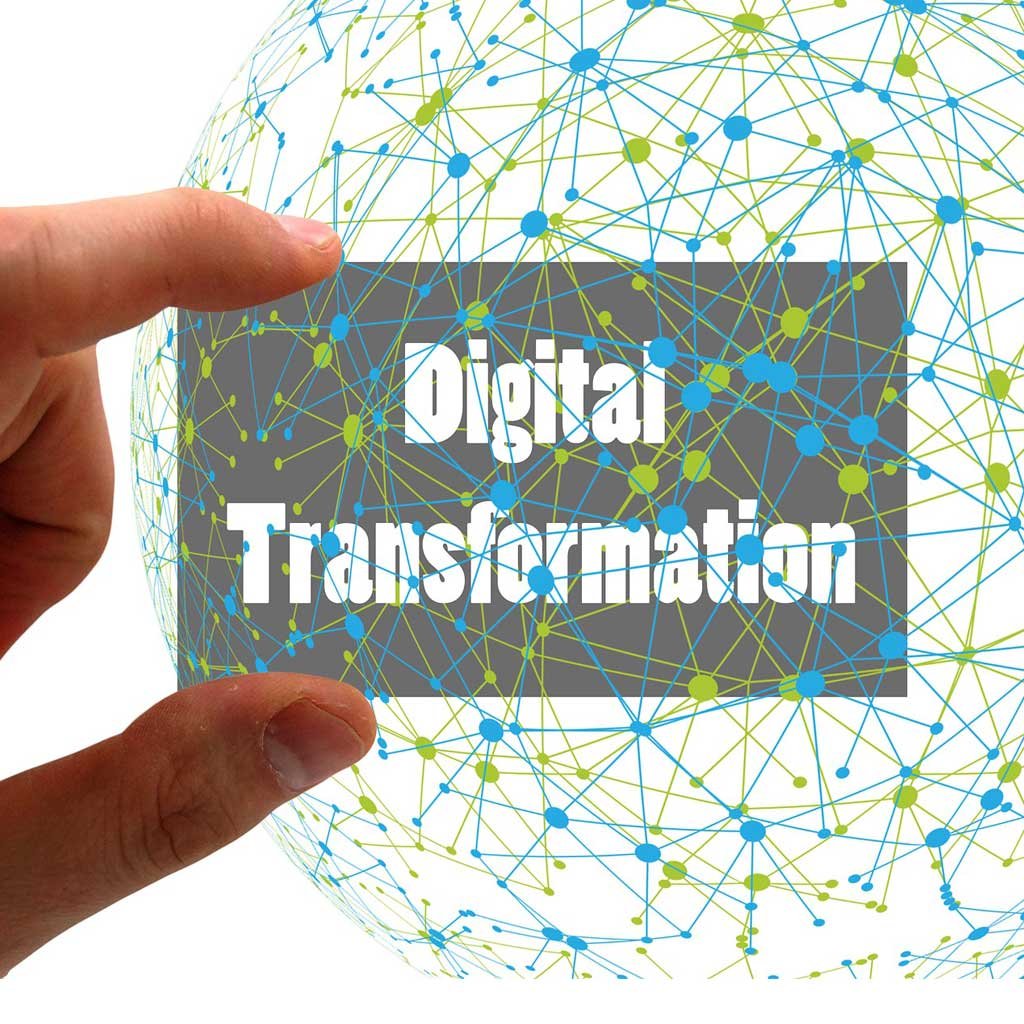
Unveiling the Key Drivers of Digital Transformation in Today's Business Landscape
March 21, 2024 | Digital Techtune
In today’s rapidly evolving business landscape, digital transformation has emerged as a pivotal strategy for organizations aiming to stay competitive and relevant. The convergence of technological advancements, changing consumer behaviors, and dynamic market trends has propelled businesses towards embracing digital transformation initiatives. This essay delves into the multifaceted nature of digital transformation, elucidating its key drivers that are reshaping the contemporary business landscape.
Understanding Digital Transformation
Digital transformation encompasses the strategic integration of digital technologies across all facets of an organization to fundamentally alter its operations, processes, and customer interactions. It transcends mere digitization by fostering a cultural shift and enabling innovative approaches to business strategies. From leveraging data analytics and artificial intelligence to adopting cloud computing and automation, digital transformation empowers businesses to enhance efficiency, agility, and customer-centricity.
Key Drivers of Digital Transformation:
Technological Advancements:
The relentless pace of technological innovation serves as a primary catalyst for digital transformation. Breakthroughs in areas such as artificial intelligence, machine learning, Internet of Things (IoT), blockchain, and augmented reality have unlocked unprecedented opportunities for businesses to reimagine their operations and create value. For instance, AI-driven analytics enable organizations to derive actionable insights from vast datasets, facilitating data-driven decision-making and personalized customer experiences.
Changing Consumer Expectations:
Evolving consumer preferences and behaviors are compelling businesses to embrace digital transformation to meet heightened expectations for seamless, personalized, and omnichannel experiences. With the ubiquity of smartphones and digital platforms, consumers demand instant access to products and services, driving businesses to prioritize digital channels and optimize user interfaces. Moreover, the rise of the “experience economy” emphasizes the importance of delivering memorable interactions across the entire customer journey, prompting organizations to invest in innovative technologies to enhance engagement and loyalty.
Competitive Pressures:
In today’s hypercompetitive business landscape, digital transformation has become imperative for organizations seeking to differentiate themselves and sustain relevance. Disruptive startups and tech-native companies are challenging traditional incumbents by leveraging digital technologies to streamline processes, introduce innovative business models, and capture market share swiftly. As a result, established enterprises are compelled to embark on digital transformation journeys to enhance agility, foster innovation, and defend against competitive threats.
Data Deluge and Analytics:
The proliferation of data generated by digital interactions, IoT devices, and interconnected systems has fueled the need for advanced analytics capabilities to derive actionable insights and drive strategic decision-making. Digital transformation enables organizations to harness the power of big data analytics, predictive modeling, and real-time intelligence to optimize operations, anticipate customer needs, and identify market trends. By leveraging data-driven insights, businesses can enhance operational efficiency, mitigate risks, and capitalize on growth opportunities in dynamic market environments.
Regulatory and Compliance Requirements:
The evolving regulatory landscape, encompassing data privacy regulations, cybersecurity standards, and industry-specific mandates, exerts pressure on businesses to adopt digital transformation initiatives to ensure compliance and mitigate legal risks. Stricter regulations, such as the General Data Protection Regulation (GDPR) and the California Consumer Privacy Act (CCPA), mandate stringent data protection measures and transparency in data handling practices. Consequently, organizations are compelled to invest in cybersecurity frameworks, data governance strategies, and compliance technologies to safeguard sensitive information and uphold regulatory compliance standards.
Agile and Adaptive Organizational Culture :
Digital transformation transcends technological upgrades by necessitating a cultural shift towards agility, innovation, and continuous learning within organizations. Agile methodologies, DevOps practices, and cross-functional collaboration are essential components of a digitally mature culture that promotes experimentation, rapid iteration, and adaptability to changing market dynamics. By fostering a culture of innovation and empowerment, businesses can cultivate a workforce equipped with the skills and mindset required to drive digital transformation initiatives and navigate complexity in the digital age.
Cost Optimization and Operational Efficiency :
Digital transformation offers significant opportunities for businesses to streamline operations, automate repetitive tasks, and optimize costs through the adoption of cloud computing, software-as-a-service (SaaS) solutions, and robotic process automation (RPA). By migrating legacy systems to cloud-based platforms, organizations can reduce infrastructure costs, scale resources dynamically, and enhance operational resilience. Likewise, RPA technologies enable businesses to automate manual processes, minimize errors, and reallocate human resources to value-added tasks, thereby improving productivity and efficiency across the enterprise.
Globalization and Market Expansion:
The proliferation of digital technologies has facilitated globalization and enabled businesses to expand into new markets, reach diverse customer segments, and forge strategic partnerships on a global scale. E-commerce platforms, digital marketplaces, and cross-border payment systems empower organizations to transcend geographical barriers and capitalize on emerging opportunities in international markets. Digital transformation equips businesses with the tools and capabilities to localize products, customize marketing campaigns, and deliver tailored experiences that resonate with diverse cultural preferences and regulatory requirements.
Environmental Sustainability and Corporate Responsibility :
Increasing awareness of environmental sustainability and corporate social responsibility (CSR) has prompted businesses to integrate sustainability principles into their digital transformation strategies. By adopting eco-friendly technologies, optimizing energy consumption, and reducing carbon footprints, organizations can mitigate environmental impact while enhancing operational efficiency and cost savings. Furthermore, digital transformation enables businesses to embrace remote work practices, virtual collaboration tools, and paperless operations, contributing to a more sustainable and resilient business ecosystem.
Resilience and Business Continuity:
In an era marked by unprecedented disruptions, such as the COVID-19 pandemic, digital transformation has emerged as a critical enabler of resilience and business continuity. Organizations that had invested in digital infrastructure, remote work capabilities, and digital collaboration tools were better equipped to adapt to remote work environments, ensure operational continuity, and maintain customer engagement amidst lockdowns and restrictions. By embracing digital transformation, businesses can enhance their resilience to unforeseen events, mitigate risks, and thrive in volatile and uncertain market conditions.
Digital transformation is a multifaceted journey driven by a confluence of technological, market, and organizational factors reshaping the contemporary business landscape. From technological advancements and changing consumer expectations to regulatory pressures and sustainability imperatives, organizations are compelled to embrace digital transformation initiatives to stay competitive, agile, and relevant in an increasingly digital world. By harnessing the transformative power of digital technologies and fostering a culture of innovation, businesses can unlock new opportunities, drive operational excellence, and create sustainable value in the digital age.

